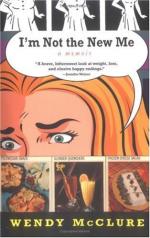Andover does not sew for the missionaries now. Her poor married theologues must wait a little for their babies’ dresses. Even the blue flannel shirts for the drill are forgotten. The chapel is turned into sudden, awful uses, of which the “pious founders” in their comfortable graves did never dream. For there the women of the Hill, staying for no prayer-meeting, and delaying to sing no hymns, pick lint and roll bandages and pack supplies for the field; and there they sacrifice and suffer, like women who knew no theology at all; and since it was not theirs to offer life to the teeth of shot and shell, they “gave their happiness instead.”
* * * * *
The first thing which I wrote, marking in any sense the beginning of what authors are accustomed to call their “literary career”—I dislike the phrase and wish we had a better—was a war story.
As nearly as I can recall the facts, up to this time I had shown no literary tendency whatever, since the receipt of that check for two dollars and a half. Possibly the munificence of that honorarium seemed to me to satiate mortal ambition for years. It is true that, during my schooldays, I did perpetrate three full-grown novels in manuscript. My dearest particular intimate and I shared in this exploit, and read our chapters to each other on Saturday afternoons.
I remember that the title of one of these “books” was “The Shadow of a Lifetime.” It was a double title with a heroine to it, but I forget the lady’s name, or even the nature of her particular shadow. The only thing that can be said about these three volumes is, that their youthful author had the saving sense not to try the Christian temper of a publisher with their perusal.
Yet, in truth, I have never regretted the precious portion of human existence spent in their creation; for I must have written off in that way a certain amount of apprenticeship which does, in some cases, find its way into type, and devastate the endurance of a patient public.
The war story of which I speak was distinctly the beginning of anything like genuine work for me. Mr. Alden tells me that it was published in January, 1864; but I think it must have been written a while before that, though not long, for its appearance quickly followed the receipt of the manuscript. The name of the story was “A Sacrifice Consumed.” It was a very little story, not covering more than four or five pages in print. I sent it to “Harper’s Magazine,” without introduction or what young writers are accustomed to call “influence;” it was sent quite privately, without the knowledge of any friend. It was immediately accepted, and a prompt check for twenty-five dollars accompanied the acceptance. Even my father knew nothing of the venture until I carried the letter and enclosure to him. The pleasure on his expressive face was only equalled by its frank and unqualified astonishment. He read the story when it came out, and, I think,




